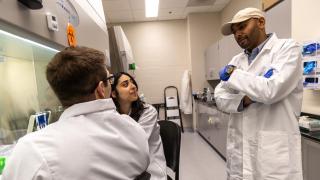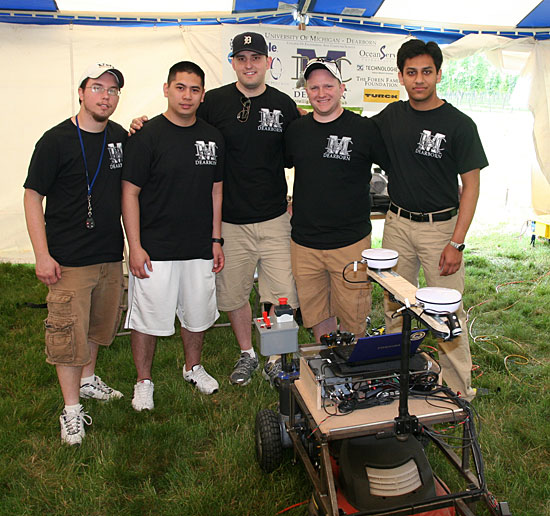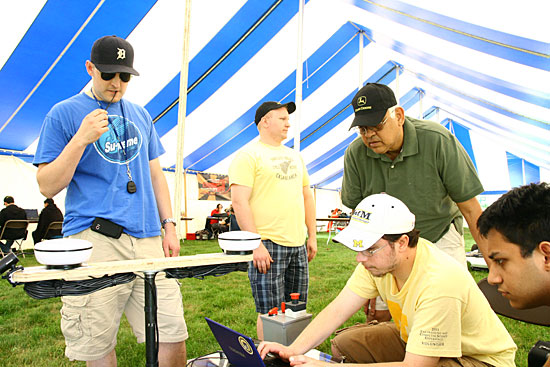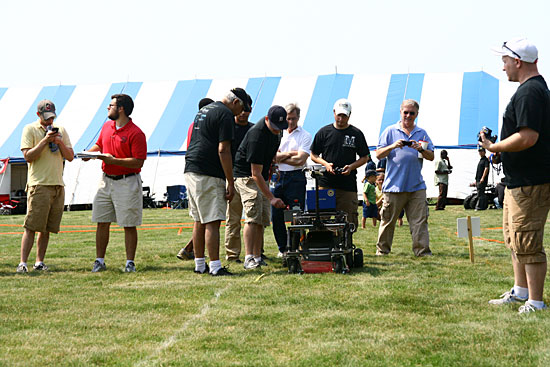
 Members of UM-Dearborn's Intelligent Systems Club recently placed second-and won $1,500--in the 8th annual ION Robotic Lawn Mower Competition in Beavercreek, Ohio.
Members of UM-Dearborn's Intelligent Systems Club recently placed second-and won $1,500--in the 8th annual ION Robotic Lawn Mower Competition in Beavercreek, Ohio.
The group--(from left, as shown above) Kris Bechamp, Mel Malabanan, Mark Lawrence, Mike Pearson, Zak Juber and Tuo Xiang (who could not make the trip to the competition and is not pictured)--achieved this rank in spite of a GPS glitch that cost them 15 percent on the first run, and an electrical fire in the middle of the second run.
This annual contest challenges students to design and operate a robotic unmanned lawn mower using the art of science and navigation to rapidly and accurately mow a field of grass.
The UM-Dearborn engineering students competed in the "Basic Autonomous Mowing" category, which places teams on a competitive field that's rectangular with one static, non-moving obstacle.
"As our robot made its way through the course, the mower's motor started getting noticeably less loud and seemed like it was struggling," Pearson said. "As it neared the middle of the course, smoke could be seen emanating from the robot shortly after it made its turn to avoid the obstacle sitting in the middle of the field. We decided to stop the run and braced for the worst as the judges handed us a fire extinguisher."
The team was granted a restart. On the final run, the team watched their robot maneuver the course quite well before its motor cut out due to the earlier problem.
"Solving the smoke problem as a team was probably our biggest win," said Juber. "The split second decisions that were made that day really proved our confidence in the robot we built and the faith we had in our fellow teammates."
The students' faculty advisor, Nattu Natarajan, associate professor of electrical and computer engineering, agreed.
"Most of the members of this team are about to graduate," Natarajan said. "While I will miss them, it is really wonderful that they will be leaving on a high note. I am really proud of the fact that they were able to overcome the electrical fire and finish the race, coming in a very close second."
"They were a team in the true sense of the word and what they learned both in terms of technical knowledge and team effort will make them very valuable to whoever hires them," he said.
Bechamp attributes part of the team's success to Natarajan whose dedication to the group is evident in the amount of time he spends mentoring the team. "His extra effort has allowed us students to learn far more than is ever possible in the classroom; this includes application of technology as well as core engineering theories and principles," Bechamp said. "It's because of him that our small school with a limited budget can compete so well against large heavily-funded universities. He proves that it's not about the investment in a project, it's the caliber of thought that goes into it."
Photos courtesy Mel Malabanan and Kristopher Bechamp.







